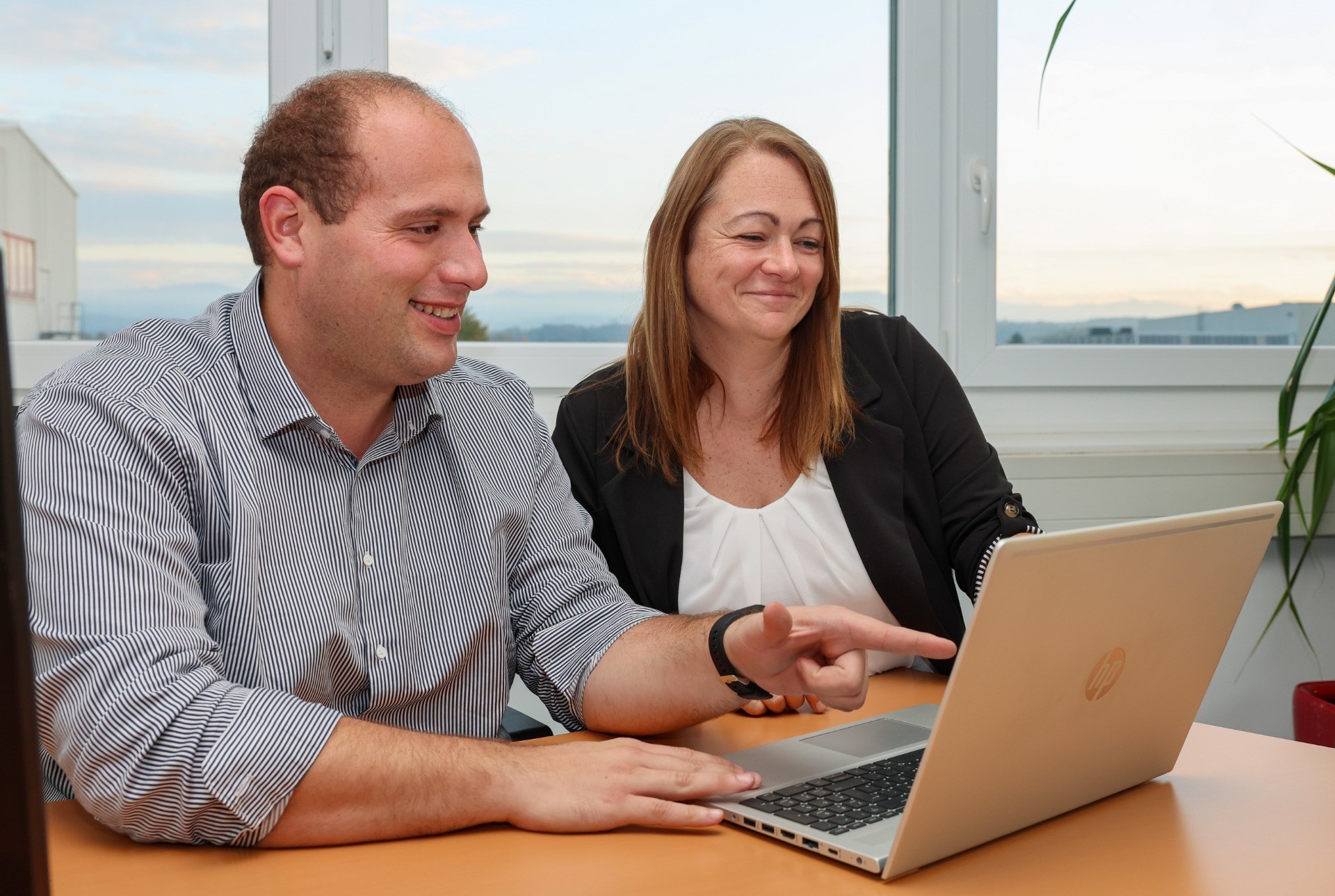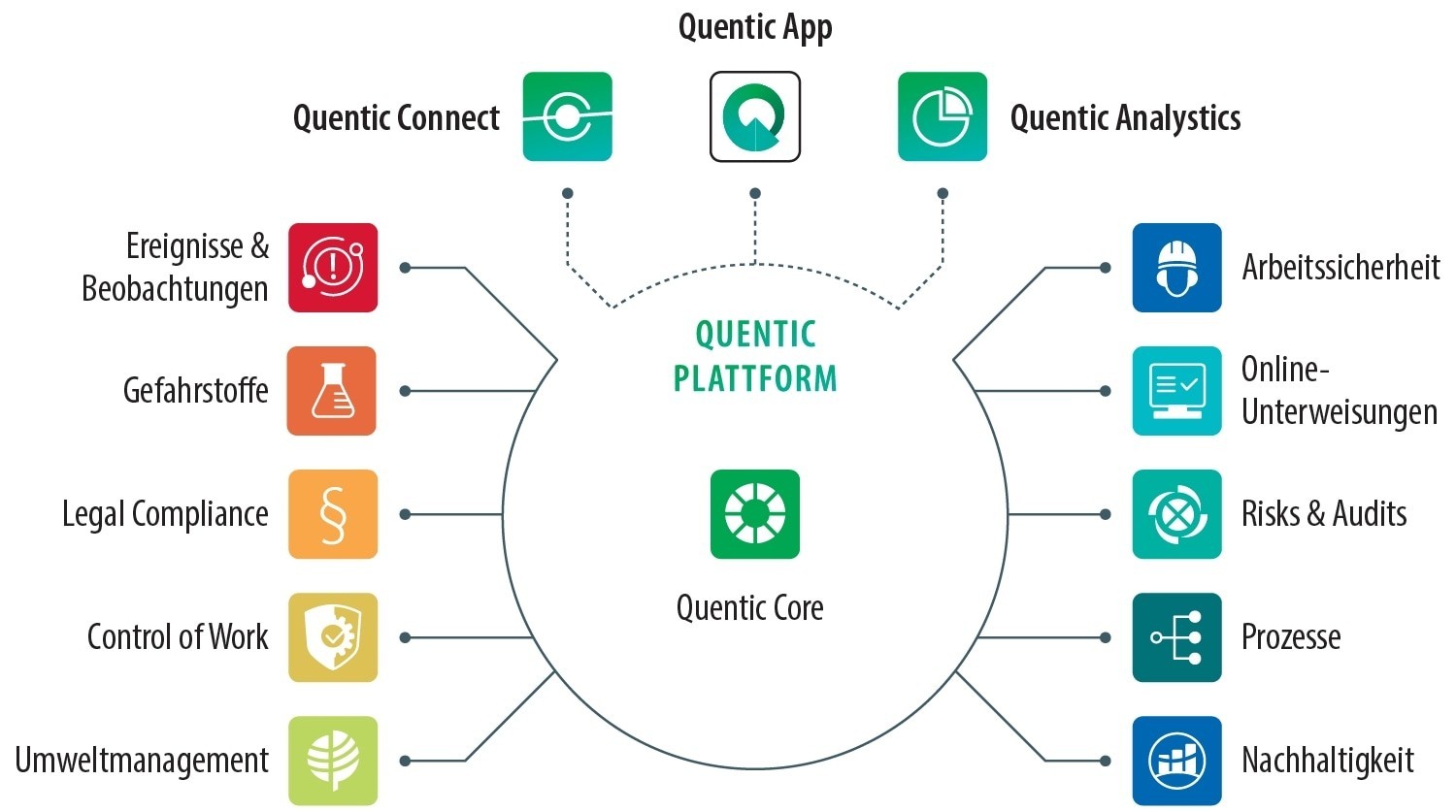A quantum leap forward in digitalisation
The Müller-Guttenbrunn Group has introduced an integrated QHSE (Quality Health Safety Environment) management system at its Austrian sites in Amstetten and Kematen an der Ybbs, thereby taking a huge step towards the future. Cloud-based, GDPR-compliant and in compliance with the latest security standards, the company is now able to optimise and standardise the quality of its processes. This huge step in terms of digitalisation once again makes MGG a pioneer in the European recycling industry.
A QHSE-management system is designed to link the areas of quality, health, safety and the environment and to develop a holistic strategy that takes into account the risks and opportunities in these areas. In simple terms, the aim is to fulfil legal requirements, increase efficiency, improve employee health and satisfaction and reduce environmental impact.
An important component of this digital system is the central storage of all necessary documents in an IT-secure cloud. All documents relevant to the Müller-Guttenbrunn Group's processes are stored in this system, which - depending on their authorisation - can be accessed by company employees from anywhere. Documents are not stored locally but are referenced or retrieved from the cloud. This ensures that there is only ever one version of a document - the currently valid version - and that there are no parallel or ‘old’ versions. This QHSE management system also defines workflow processes and approval processes as well as access rights.
How is the project organised?
Around two years ago, Lisa Maria Rainer (Head of Quality and Environmental Management, MGG Group) and Philipp Felber (Head of Quality and Environmental Management, Product Development MGG Polymers) were tasked by the company management with researching QHSE software. Together with Armin Blutsch, (Head of Group IT MGG Group), the search began. The project team found what they were looking for with Quentic. A long process followed, which began with the conclusion of a contract, followed by the installation of the test environment, a test start with the core team and the go-live, including employee training, which is due to take place shortly. The final stage of commissioning is the complete go-live date, which is scheduled for later on.
What is the system capable of?
The Quentic management system maps the company structure, has a reminder and escalation management system, creates a central, structured file architecture and enables standardised documentation - from root cause analysis to process improvement. The Quentic software can be used to simplify procedures within the organisation and standardise legal requirements, standards, norms, areas or processes
What is the current status of the project?
The phase of filling the system with documents and data is now complete and legal compliance has been achieved. The next step is to ‘roll out’ the system to the company. More and more employees are being trained and familiarised with the benefits of Quentic. This does not happen overnight. Recurring appointments or workshops in small groups are needed to anchor the management system in the company and thus reap all the benefits that the system offers.
Philipp Felber is proud to be part of this project:
‘The introduction of the QHSE software (Quentic) sets new standards in our company. We are one of the few companies in the recycling industry in Europe to have implemented software of this kind. This is a significant digitisation step for the Müller-Guttenbrunn Group. With this system, we are not only improving our internal processes, but also strengthening our position as a pioneer in the recycling industry. This is an important milestone on our way to combining sustainable solutions with state-of-the-art technology and fulfilling the high requirements for quality, health, safety and the environment even better.’
Why implement a QHSE management system?
By implementing the management system, the company can expect a number of benefits. Efficiency and productivity will be increased and risks reduced through proactive action. Strong quality management can also be expected to improve product quality, which in turn will increase customer satisfaction and competitiveness. The entire system is based on the principle of continuous improvement, which will lead to higher company performance in the long term. It ensures that work is carried out effectively and sustainably in the areas of quality, health, safety and the environment.
In practice, this means that Quentic not only makes data and documents available across all locations, which are all up to date, it also reminds users of obligations and deadlines that must be met from a legal or organisational perspective. For example, numerous recurring inspection obligations have been incorporated.
The range of applications is extremely broad: from employee safety instructions to audits, regular machine checks, forklift inspections and European recycling regulations.
A stored deadline management system reminds you in good time to provide the necessary documents, such as inspection books and papers. And once such checks have been completed, an inspection report is uploaded to the system as proof of completion. Changes to the law are automatically pointed out and a clarification of whether or where changes are required is shown. Audits and official inspections, even unannounced ones, can be handled competently and with little effort. For example, the REACH Regulation or the RoHS Directive can be read quickly and easily to find out how to handle upcoming issues within and outside the EU. Online instructions for employees, reports of accidents at work, working materials and safety data sheets or even safety inspections will also be processed via this new system in future.
When will the project be finalised?
When asked when the process will be completed, Lisa Maria Rainer spontaneously replies: ‘That will never be the case, this is a “living” system!’ However, she is looking forward to the time when the system is fully operational. ‘The simplification in processing will then be more than clear. Deadlines can be adhered to independently of individual persons. The documents will be up-to-date and accessible, and access, reading and editing rights will be perfectly organised’.
The Quentic system ensures that the necessary environmental data for the CO2 footprint is also available. The standards are constantly rising and the requirements are strict: goods may only be transported by lorry on the road to a limited extent, the rest of the journey must be made by rail. Transport must be documented and evidence must be provided. Quentic is also well positioned in this area and is well ahead in the industry. The framework conditions will become even tighter in the future. With the new QHSE management system, the Müller-Guttenbrunn Group is perfectly equipped for this.


